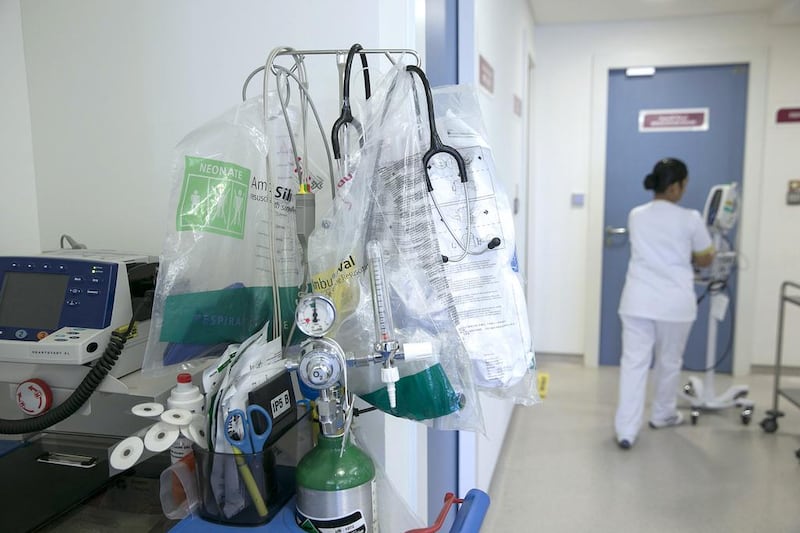Of the 1,000 residents who applied for nursing jobs on Thursday, the first of a two-day hiring campaign, none were Emirati.
For years, the government has sought to attract Emiratis into the profession but despite there being more than 7,000 Seha nurses in Abu Dhabi, only 124 are UAE nationals and only one of them is male.
Speaking on the side-lines of the sixth Seha International Nursing, Midwifery and Allied Health Conference (Sinmac), Ms Annette Kennedy, president of the International Council of Nurses said one of UAE’s biggest challenges is attracting and retaining Emirati nurses and depending less on expatriates.
“It’s a challenge all over the world but recruitment, image and possibly salaries are the biggest challenges in the UAE.”
She said the UAE currently does not have a sufficient number of UAE national nurses.
To remedy this, Seha announced plans to recruit 2,000 nurses over the next few months with officials expecting only a few Emiratis to apply, though at the end of the first day of the recruitment campaign on Thursday, none had.
“We have a lack of Emiratis enrolling in nursing programs and it is challenge,” said Dr Aysha Al Mahri, Seha’s allied health group director.
Dr Al Mahri attributes this to the perception Emiratis have of the nursing profession.
________________
Read more:
[ Abu Dhabi campaigns for young Emiratis to pursue medical careers ]
[ DHA calls for more Emiratis to enter medical profession ]
________________
“We need to improve the nursing image and we need the support of the media to spotlight the importance of nurses in providing quality care to patients.”
Dr Al Mahri said educational institutions should support this by highlighting the importance of the role of nurses.
“The government supports Emirati nurses but there is no strong spotlight on nursing. We need to inspire high school students to become nurses.”
Dr Al Mahri said the capital is currently meeting the demand for nurses but more are needed. This year, Seha hired around 1,000 nurses.
“We are looking to meet international standards of nurse-to-patient ratio because we are aiming to provide a safe practice for our patients and one of the important things is that the number of staff should be adequate to meet the demands of the patients.”
She said the nurses currently employed by Seha are predominantly from India and the Philippines.
“There is culture diversity. Some are from Asia, Europe, Arab Countries and the US but mostly are Asian from India and the Philippines.”
Dr Al Mahri said the UAE had sufficient nursing schools but needed more specialised clinical nursing master’s programmes.
“Currently only one is being offered in Ras Al Khaimah and there are no PhD programmes. We are asking academic institutions to open PhD programes.”
Nurses and midwives constitute 50 to 60 per cent of the health workforce in most health systems including those in the UAE.
Seha said it is finalising the Abu-Dhabi (Seha) nursing strategy “in line with the overall nursing strategic directions in the country and the Regional Framework for action 2017-2022 for strengthening nursing and midwifery in the Eastern Mediterranean Region.”
Abu Dhabi was also selected to host the next edition of the International Council of Nurses Congress, where more than 6,000 delegates are expected to attend.






